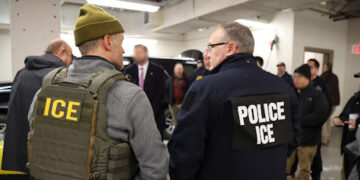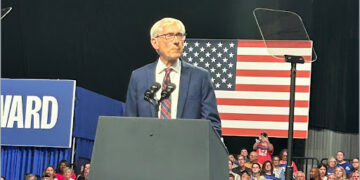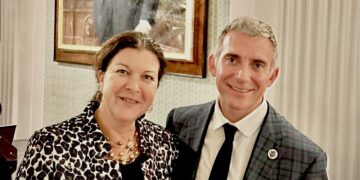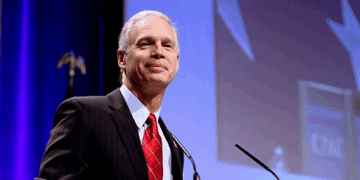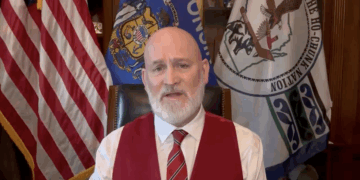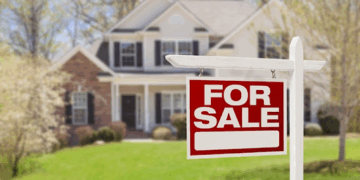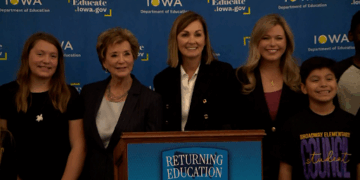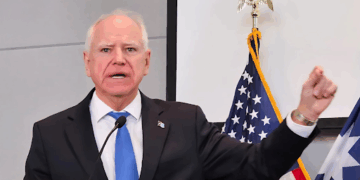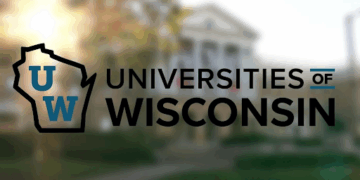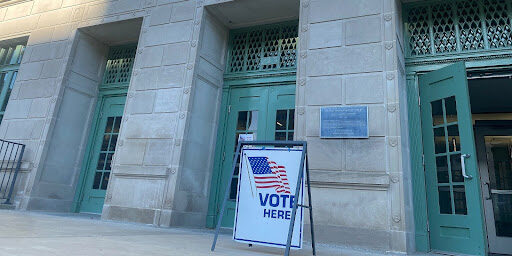School districts in Wisconsin would have to go to the public for tax increase requests more often if a bill introduced in the Assembly earlier this year becomes law.
Representative Cindi Duchow (R-Delafield) and Senator Chris Kapenga (R-Delafield) introduced a bill that aims to eliminate recurring, also known as permanent, operating referendums. Additionally, the bill proposes limiting non-recurring operating referendums to a maximum duration of four years.
While the bill’s authors told the Wisconsin Examiner that referendums are “the perfect tool” that helps keep school funding decisions at the local level, Rep. Duchow believes taxes via referendums should not be permanent and should face the voters regularly.
At a June 12 committee hearing on the bill, Duchow argued the bill will help “foster fiscal responsibility” by requiring “that every four years, the school districts have a chance” to make their case to voters on the necessity of additional taxation for school funding. (RELATED: Milwaukee Rakes in $321.5 Million from 2024 RNC, Exceeds All Expectations)
There have been questions over the effectiveness and fairness of school referendums the last few years. In April 2024, the Wisconsin Institute for Law & Liberty released a report detailing how they say school districts fail voters when asking for more funding via a referendum. One example WILL argues is to intentionally sow confusion over millage rates and how they interact with home valuations, such that voters think the tax hike won’t be as large as it is.
WILL also contends that the use of referendums to authorize loans ends up costing taxpayers more in the long run. When school districts take out loans, using what WILL calls “balloon payments”, deceives voters by increasing the annual payback amount over time rather than the same amount every year. They argue that it’s a way for school districts to “hide the true cost” of a proposal from voters.
According to WILL, there’s been more than $22 billion in spending approved via referendum since 1990. (RELATED: Supreme Court Backs Catholic Charities in Wisconsin Unemployment Tax Case)
In a 2023 report from Forward Analytics on school referendums, the group’s director Dale Knapp said he doesn’t believe lawmakers that previously allowed school districts to place referendums on the ballot “envisioned referendums being relied on this much.”
During that same hearing in June, Duchow used a recent referendum in Milwaukee as an example of a permanent tax increase that impacts individuals and families moving into an area with taxes they won’t have the ability to approve or disapprove in the future. Duchow also argued that with declining enrollment, long-term or permanent referendums does not make sense.
Wisconsin Democrats argue the increase in referendums is the result of school funding being “constantly threatened.”
Earlier this year, voters approved a majority of the referendums on the ballot in the 2025 spring election. According to the Wisconsin Department of Public Instruction, of the 94 referendums put in front of voters, 51 passed, totaling nearly $1 billion in new spending. The largest referendum in terms of spending that passed was a nearly $200 million referendum in Oshkosh. 24 of the referendums passed by less than 100 votes. Nearly half of all school districts in the state had a referendum on the ballot during the November 2025 election.

